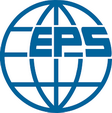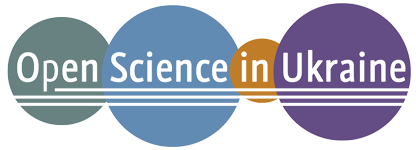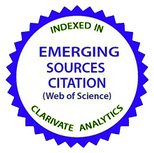Light emitters based on CdTe doped with isovalent impurities
DOI:
https://doi.org/10.15330/pcss.23.2.317-321Keywords:
light emitters, cadmium telluride, isovalent impurity, high intensity, edge radiationAbstract
The problems of developing light-emitting structures based on CdTe with an extended range of operating temperatures and radiation-resistant parameters are studied. A technique for obtaining heterostructures has been mastered, technological modes of isovalent substitution have been determined, and radiation sources with a high quantum efficiency η = 7–20% at 300 K in a wide spectral region have been obtained. The design of devices has been developed and light emitters based on CdTe, whose radiation is determined by the interband recombination of free charge carriers and the dominant annihilation of bound excitons, have been fabricated by doping with isovalent impurities Mg, Ca.
References
Adachi Sadao, Properties of Semiconductor Alloys: Group-IV, III-V and II-VI Semiconductors (Wiley, New Jersey, 2009).
T.M. Mazur, V.P. Makhniy, V.V. Prokopiv, M.М. Slyotov, Thermal annealing effect on optical properties of the cadmiun telluride films, Journal of Nano- and Electronic Physics 9(5), 05047 (2017); http://doi.org/10.21272/jnep.9(5).05047.
О. Yermakov, Applied Optoelectronics (Technosphere, Moscow, 2004).
T. Mazur, M. Slyotov, M. Mazur, V. Prokopiv, O. Kinzerska, O. Slyotov, Features of the cadmium chalcogenide substrates with surface nanostructure, Materials Today: Proceedings 35, 626 (2021); https://doi.org/10.1016/j.matpr.2019.12.112.
L. Nykyrui, Y. Saliy, R. Yavorskyi, Y. Yavorskyi, V. Schenderovsky, G. Wisz, S. Górny, CdTe vapor phase condensates on (100) Si and glass for solar cells. In 2017 IEEE 7th International Conference Nanomaterials: Application & Properties (NAP) 01PCSI26, (2017); https://doi.org/10.1109/NAP.2017.8190161.
D.V. Korbutyak, S.V. Melnychuk, E.V. Korbut, M.M. Borysyuk, Cadmium telluride: impurity-defect states and detector properties (Ivan Fedorov, Kiev, 2000).
B. Naidych, T. Parashchuk, I. Yaremiy, et al., Structural and Thermodynamic Properties of Pb-Cd-Te Thin Films: Experimental Study and DFT Analysis, J. Electron. Mater. 50, 580 (2021); https://doi.org/10.1007/s11664-020-08561-5.
А.N. Georgobiani, М.K. Sheinkman et al., Physics of compounds А2В6 (Mir, Moscow, 1986).
Y.V. Vorobyov, V.I. Dobrovolsky, V.I. Strikha, Semiconductor research methods (Vyshcha Shkola, Kiev, 1988).
L.A. Kosyachenko, M.P. Mazur, Hot-carrier far infrared emission in silicon, Semiconductors 33(2), 143 (1999); https://doi.org/10.1134/1.1187660.
V.I. Fistul, Dopant Atoms in Semiconductors (State and Behavior) (Fizmatlit, Moscow, 2004).
V.I. Gavrilenko, A.M. Grekhov, D.V. Korbutyak, V.G. Litovchenko, Optical properties of semiconductors. Directory (Naukova Dumka, Kyiv, 1987).
V.P. Gribkovskii, Theory of light absorption and emission in semiconductors (Izdatel Nauka i Tekhnika, Minsk, 1975).
V.P. Makhniy, M.M. Slyotov, E.V. Tkachenko I.V Stets, V.V. Gorley, P.P. Horley, Application of modulation spectroscopy for determination of recombination center parameters, Thin Solid Films 450 (2004); https://doi.org/10.1016/j.tsf.2003.11.170.
T.M. Mazur, V.V. Prokopiv, M.M. Slyotov, M.P. Mazur, O.V. Kinzerska, O.M. Slyotov, Optical properties of CdTe doped Ca. Physics and chemistry of solid state 21(1), 52 (2020); https://doi.org/10.15330/pcss.21.1.52-56.
М.М. Sletov, В.В. Kosolovsky, А.М. Sletov, К.С. Ulyanitsky, Sensors with isovalent impurities, Sensor Electronics and Microsystem Technologies 2(8), 71 (2011); https://doi.org/10.18524/1815-7459.2011.2.117482.









